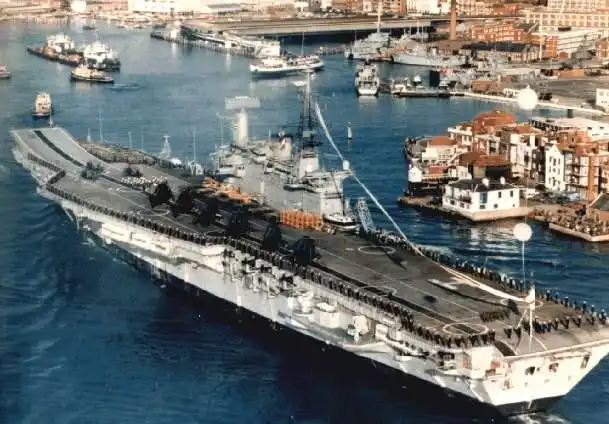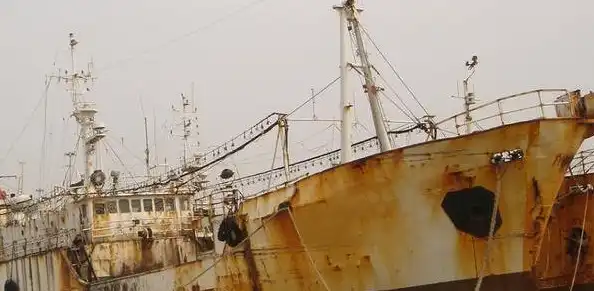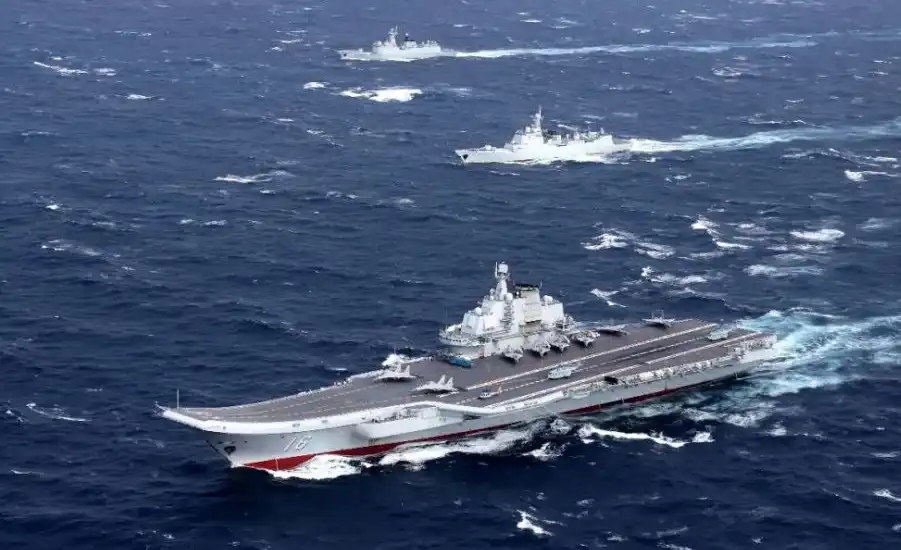rise of the great powers:China has gone from relying on used ships to independently developing military and weapons
India, an ancient nation located on the South Asian subcontinent, had long been associated with the labels of economic backwardness and technological underdevelopment in recent history.
In particular its military strength has long depended on advanced foreign weapons to maintain national security, which has become a major weakness for India's national development.
Despite the Indian government's efforts in recent years to accelerate the autonomous development of weapons and equipment, it is difficult to shake off the situation of external dependence in a short period of time due to deep-rooted factors.

At the same time, China's rise is at its peak, becoming the world's second largest economy. It has not only made world-renowned achievements in the fields of science and technology and economy, but also demonstrated strong influence in the political and cultural fields.
In the early days of the founding of the People's Republic of China, Western countries imposed a technological blockade on China in an attempt to stifle its development.
Instead of succumbing to the difficulties, Chinese scientists tackled one technical problem after another with even firmer steps. As a result, China eventually stands tall among the ranks of the world's powerful nations.
In the course of China's development, we have also encountered the predicament of technology gaps. Especially in the field of warship manufacturing, in the early days China once faced huge challenges.
But China did not choose to succumb to the predicament, but instead began its own R&D path by taking examples from other countries' discarded warships as references.
Against the odds, Chinese researchers have overcome obstacles to enhance the nation's military capabilities, astonishing the world.

Today, China is able to independently produce various types of military weapons, and no longer needs to follow others and purchase other countries' used ships for reference technical research. However, just as China is becoming stronger, some countries have begun to play crooked mind games.
Fifteen countries jointly submitted a request to the United Nations, hoping that the United Nations could persuade China to withdraw a decision. The decision involved China's refusal to continue acquiring obsolete ships from these countries.
These countries disregard China's actual circumstances and try to pressure China to become their "patsy" through the United Nations for the sake of their own economic interests.
Evidently, China is no longer the China of old. Faced with these countries' unreasonable demands, China resolutely chose to refuse. China has ample strength to say no to these forces and reject their unreasonable demands.
These old ships are nothing but scrap metal for China, which has no use for them. China will never compromise its interests in order to accommodate other countries.
China's decision has caused huge economic losses for those 15 countries. It is estimated that their direct losses will reach hundreds of billions.

This incident once again proves the rise and strength of China on the world stage. China is no longer the weak country that can be slaughtered by others, but a powerful country with enough strength and wisdom to safeguard its own interests.
China is able to maintain its stance and make decisions that are in its best interest in the face of external pressures and challenges.
China's path of rise has been full of setbacks and challenges, but it is precisely because of this spirit of perseverance that China has been able to gradually move towards strength.
Today's China is no longer a country that is blank in the field of technology. We have our own aircraft carriers, stealth fighters, strategic missiles and other series of high-tech weapons, and have become one of the world's military powers. Such achievements are inseparable from the hard work and perseverance of Chinese scientists.
